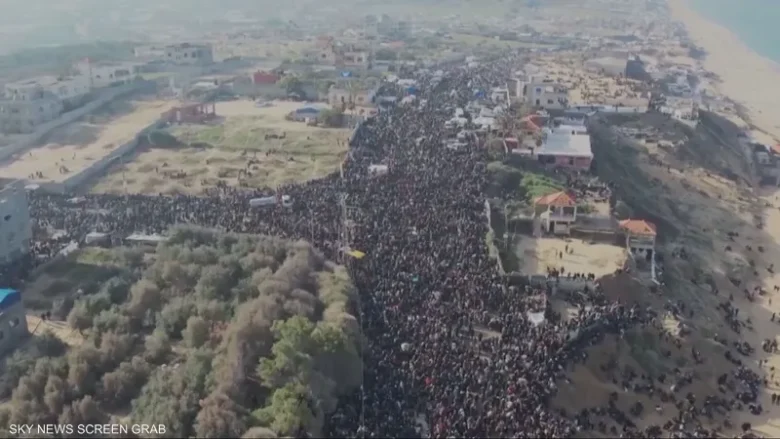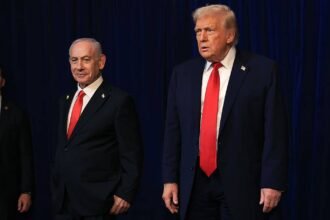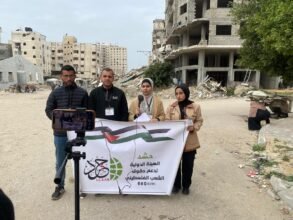
Among them ICSPR: 126 Human Rights and Civil Organizations Support the UN Secretary-General’s Initiative and Call for Genuine Civil Society Participation in This Reform Process Aimed at Modernizing and Democratizing United Nations Structures
Date: August 9, 2025
Press Release
Among them ICSPR: 126 Human Rights and Civil Organizations Support the UN Secretary-General’s Initiative and Call for Genuine Civil Society Participation in This Reform Process Aimed at Modernizing and Democratizing United Nations Structures
We, the undersigned human rights organizations, value the initiative launched by United Nations Secretary-General Mr. António Guterres on March 12 of this year, on the occasion of the 80th anniversary of the founding of the United Nations in 1945. In this initiative, he noted that the world is witnessing today “unprecedented assaults on the purposes and principles of the UN Charter, as well as the growing threat or use of force against sovereign states, violations of international law — including international humanitarian law and international human rights law — targeting of civilians and civilian infrastructure, weaponization of food and water, and the erosion of human rights.”
The initiative criticized the selective application of the UN Charter by some parties and called for rejecting any “normalization of violations of its most basic principles” and for “respecting international law and recommitting to it — in word and deed.” It called for greater “adaptation to a multipolar digital world,” broad openness to civil society and youth, modernization of working methods, and the building of strong, renewed, inclusive, and interconnected multilateral dynamics that can adapt to the needs of the 21st century. The initiative reaffirmed the world’s commitment to international law and to the spirit and text of the UN Charter, aimed at uniting efforts for peace, justice, and progress for the peoples of the world.
The goal of this initiative is to modernize the UN’s structures, priorities, and operations and to democratize them, ensuring that the United Nations remains cost-effective and responsive to the objectives for which it was founded.
On the occasion of the 80th anniversary of the United Nations, the undersigned human rights organizations seek to reinforce the principles and foundations upon which its Charter rests — a Charter that speaks in the name of the peoples of the world, reflecting their aspiration for a world in which nations are equal, all enjoy peace, and brute force has no place. In line with the initiative of UN Secretary-General António Guterres, the signatory organizations believe that the pursuit of justice, equality, and freedom is an unending mission, requiring the integration and flourishing of human rights in every village, city, and country, through the cooperation of all actors who share the vision and the goal of building a world free of corruption, poverty, hunger, disease, discrimination, tyranny, exploitation, and wars.
Regrettably, we observe that these scourges are widespread in our present world, and that humanity — along with the universal human values it has accumulated — is facing a severe test and grave threat.
Considering the suffering endured by humanity in the aftermath of the two World Wars, as well as colonialism and the violation of peoples’ rights and state sovereignty — and given that the United Nations and its institutions, due to the flaws and imbalances embedded since their inception, have rarely succeeded in preventing such violations or compelling major powers to cease them — the undersigned organizations call on the Secretary-General and the Office of the High Commissioner for Human Rights to act as follows:
First: Reform the UN human rights system towards building a fair, effective, efficient, and responsive human rights regime that serves the interests of the world’s peoples by guaranteeing their right to self-determination and promoting peace.
Second: Establish a more representative, just, equitable, flexible, effective, efficient, responsive, legitimate, democratic, and accountable multilateral international system, in which the United Nations plays a central role, and where sovereign states cooperate to maintain international peace and security, achieve sustainable development, promote democracy, and protect human and peoples’ rights and fundamental freedoms for all.
Third: Create participatory democratic mechanisms to curb the excessive power of certain major states that use their unilateral veto rights to undermine peoples’ rights and maintain control over their resources.
Fourth: Make the decisions of the General Assembly — which is more representative of the world’s states than the Security Council — more binding and decisive.
Fifth: Establish binding mechanisms to ensure all states respect and implement UN resolutions (such as those affirming the inalienable rights of the Palestinian people, foremost among them the right of return, self-determination, and the establishment of their independent state).
Sixth: Amend the executive powers currently reserved exclusively for the approval of the five permanent members of the Security Council, including the right of veto.





